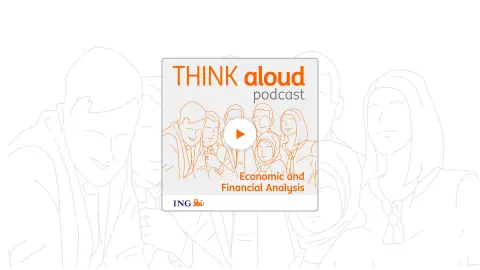Norges Bank: No helping hand to the battered NOK
The Norges Bank struck a cautious tone today. Given the global uncertainty, it verbally delayed the prospect of policy normalisation. This is clearly not positive for Norway's krone, which is already under heavy pressure and set to remain the most vulnerable G10 currency in falling markets
No change over the next couple of years
The NB struck a cautious tone today. While the interest forecast still points towards tightening (NB modestly upgraded the interest rate path for end 2022, showing interest rates at 0.21% vs 0.16% previously), the verbal forward guidance was more cautious, with the NB saying rates will stay ‘’at the current level over the next couple of years.’’ This is a more forceful message compared to the previous statement where rates were supposed to stay unchanged for ‘’some time ahead”.
This rhetoric is justified, in our view, given the rising Covid-19 related uncertainties, the re-rating of global growth prospects by the market and the subsequent limited upside to oil prices. With such risks rising, the change in the NB's bias (back towards more hawkish / constructive) is unlikely to happen anytime soon.
NOK remains vulnerable
The NB has been widely considered to be the most hike-prone central bank in the G10 FX space, and the dovish/cautious bias presented in the NB statement today pours cold water on such expectations (of earlier hikes). With NOK already struggling heavily during the recent fall in risk assets, the NB has clearly not provided a helping hand (rather the opposite) and NOK continues its decline as well as it underperformance vs G10 peers. In the current fragile markets, we see the low liquidity krone (which is the least liquid currency in the G10 FX space) as the most vulnerable G10 currency - as was the case during the peak of the Covid-19 crisis this spring and during the market sell-off this week.
This publication has been prepared by ING solely for information purposes irrespective of a particular user's means, financial situation or investment objectives. The information does not constitute investment recommendation, and nor is it investment, legal or tax advice or an offer or solicitation to purchase or sell any financial instrument. Read more
Download
Download article
24 September 2020
Covid spikes threaten the recovery This bundle contains 10 Articles